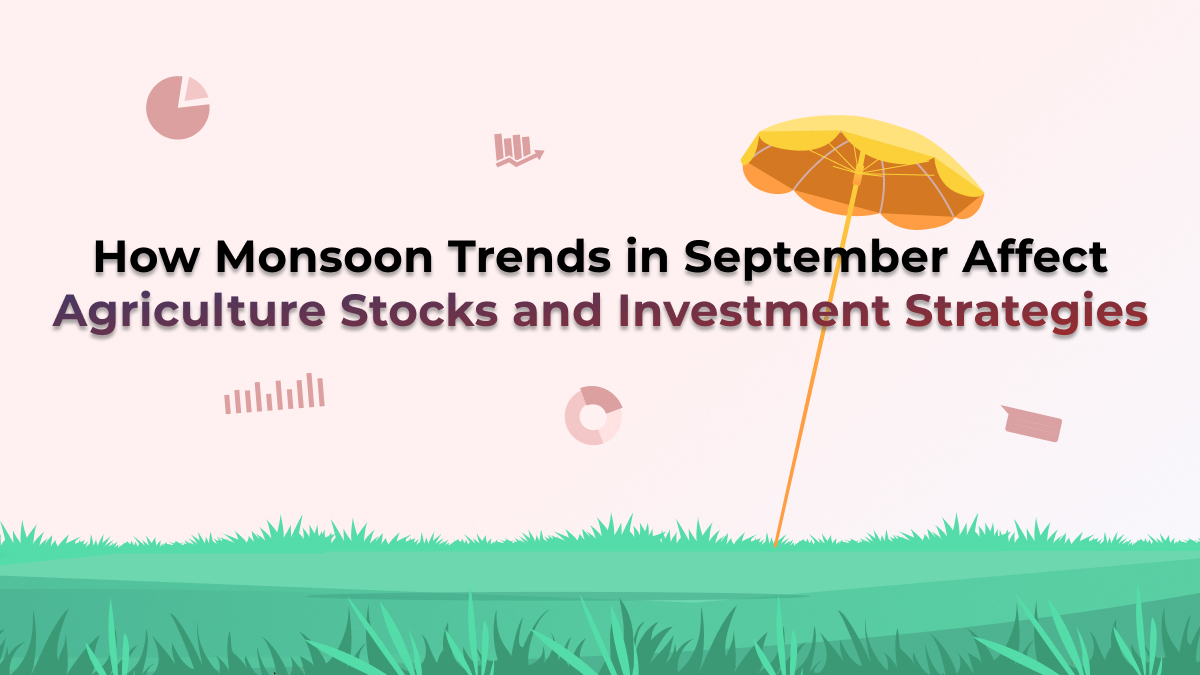Introduction
September is a crucial month for the monsoon season in India. The rain during this time can have a significant impact on farming and stock prices related to agriculture. This blog will explain how September’s monsoon affects crop production and how it influences agriculture stocks and investment strategies.
What’s Happening with the Monsoon in September?
Monsoon Patterns
In September, the monsoon often starts to slow down, but the amount of rain can vary widely. This rain is essential for crops because it can either support their growth or cause problems if it is excessive or insufficient.
Historical Examples
– 2020: Heavy rains in September led to a successful rice harvest in Punjab.
– 2014: Weaker rains caused difficulties for cotton farmers in Maharashtra.
These examples highlight how the September monsoon can greatly affect agricultural outcomes.
How September Monsoon Affects Crop Production
Crop Yields
The rainfall in September has a direct impact on how much farmers can harvest. For example:
– Uttar Pradesh: Good rain can increase sugarcane yields.
– Gujarat: Insufficient rain can hurt cotton production.
The right weather conditions can significantly influence agricultural productivity.
Regional Differences
Different parts of India experience the monsoon differently:
– Kerala: Often receives abundant rain, benefiting rice crops.
– Punjab: Might get less rain, affecting local crop production differently.
These regional differences show how the monsoon can impact farming across the country.
Challenges for Farmers
Farmers face several challenges with unpredictable weather:
– Assam 2022: Floods damaged many rice fields.
– Delayed Rains: Can disrupt planting schedules and reduce crop yields.
These challenges highlight the risks associated with varying weather patterns.
Impact on Agriculture Stocks
Effect on Farming Companies
Companies that sell seeds, fertilizers, and pesticides are affected by the monsoon:
– UPL Ltd.: May see reduced demand for their products if the monsoon is poor, impacting their stock prices.
Stock Market Reactions
Stock prices for agriculture-related companies often react to the monsoon:
– Strong Rains: Can boost stocks due to expected higher crop yields.
– Weak Rains: Can lead to lower stock prices.
Real-World Examples
– 2014: Tata Chemicals’ stock price fell due to a poor monsoon, resulting in lower crop production and decreased demand for fertilizers.
Smart Investment Strategies
Evaluating Risks
When investing in agriculture stocks, consider the potential impact of the September monsoon. Use weather forecasts and historical data to make informed decisions.
Investment Tips
– Diversification: Spread your investments across different sectors to manage risk.
– Long-Term Investments: Often provide more stability compared to short-term ones affected by weather.
Opportunities
Look for companies that are advancing in agriculture:
– Drought-Resistant Crops: Companies developing crops that can withstand dry conditions.
– New Irrigation Methods: Firms working on improved irrigation technologies.
These innovations might help companies better handle weather changes.
Expert Insights
Weather Forecasts
Weather forecasts are crucial for both farmers and investors. If forecasts predict good rains, it might be a good time to invest in companies that benefit from higher crop production.
Financial Analysis
Financial experts analyze how weather trends impact agriculture stocks. Their advice can help you decide whether to buy or sell stocks based on current and expected weather conditions.
Conclusion
The September monsoon plays a significant role in agriculture. The amount of rainfall affects crop yields and, in turn, the prices of agriculture stocks and investment strategies.
Final Thoughts
Staying updated on monsoon trends and their effects can help you make better investment choices. Follow weather forecasts and expert advice to navigate agricultural investments more effectively Have you noticed how the monsoon affects farming and investments? Share your experiences and insights in the comments!
